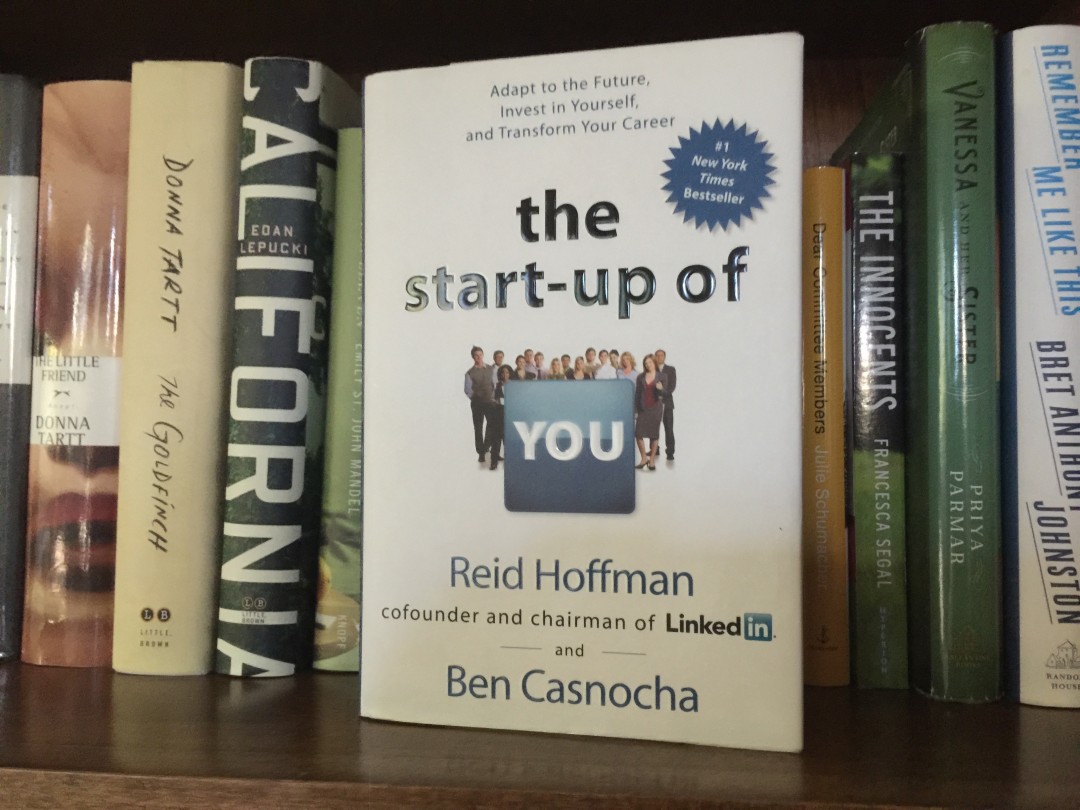It’s the time of year when summer internship and job applications are top of mind, which means potential employers are calling your references, either before or after your interviews. My older son, Nick, mentioned this week that he was calling undergraduate references right now as he sorts through the applicants for a summer field tech to help with his lab’s work. After talking to him, I realized this is an area where college students could use some practical advice.
Networking
Our oldest son, Nick, graduated last weekend from University of Puget Sound. I had the chance to hear many students speak on stage at the various award ceremonies and the interfaith service, as well as talk informally at department receptions and parties. I thought it might be worth writing a post before I disappear for much of the summer. The press is full of transcripts and videos every May/June of all kinds of famous, high-achieving people giving inspirational commencement talks. And while I agree with the calls to greatness, the reminders of the problems our society faces that await new eyes and minds, and the warnings that life will be full of challenges, I think some more basic advice on the job hunt and settling into a new place might be useful for new graduates and their families.
You’ve finished college. Not everyone does.
You may have some lifelong friends. Not everyone does.
You may have a job lined up or a graduate school program to start. Not everyone does.
Everyone does move forward from this point and make a life. You will, too. (Be brave.)
Someone recently asked me is I could teach a small group of college-bound high school seniors how to set up their LinkedIn profiles. Funny, because we’d just come out of our monthly Lean In Circle meeting where we went through our profiles one by one and updated them. There are a ton of people blogging in detail about tips and it’s definitely a project to think about that first little intro blurb, but I’m just going to give you a quick checklist of things to do for that new empty little profile and link them to other posts that give you some tips on how to do those things.
The brutal truth is that while estimates vary, most jobs are never advertised at all. Openings pop up, internally and externally, and are filled through referrals. The easiest way to get a really great job is to have a rich, active network that thinks of you when they hear of new opportunities. Even jobs at places that are required to post openings and go through an open search process frequently go to someone with an inside track—all other things being equal the referred candidate offers a more certain outcome. The biggest mistake I see people make in their job hunts at any stage of their career is not building and maintaining their network long before they need it.
There are two kinds of resume audiences everyone needs to consider.
The first is the big business resume. That resume gets scanned by computers looking for keywords before a human in HR ever gets to it. I don’t deal with these, but there are tons of internet resources to tell you how to write this resume. The basics are about nor cluttering it with design elements like headers or illustrations, using the right keywords and using them in long form as well as in acronym form. You never know how the system is going to be looking, and it may not be a perfectly designed search. Use factual language, strip out tricky sentences, lean towards using bullets rather than sentences. Use simple fonts and consider submitting in a plain text format—avoiding software issues created even by the ubiquitous Word and PDF formats. While this is an older post, Lifehacker does a good job of covering this subject. And these resumes are ranked, so having some of the skills is enough to make it worth applying—you don’t have to have a perfect score on the requirements.
The second kind of resume, the one read by a person, is the one I see. Here’s what I think works and doesn’t work, based on about 30 years of screening resumes. First of all, the first, and most easily avoidable, mistake I see over and over again is people emailing me the wrong resume, the one for another job. Another fatal error is sending out a resume via a mass emailing to all the design firms in San Diego—that tells us all that you don’t care enough about doing a job right to send out 20 different custom emails, a tip-off to your shortcut-taking approach to life that isn’t what anyone is looking to hire.
This week I received yet another completely generic, one-line “I’d like to connect with you on LinkedIn” invitation from someone I didn’t know, whose job title is “student at XYZ University.” I admit, I am sometimes uncertain about the invites I get. Not because I am old and forgetful, but because I’ve been working since I was 16—I’ve met a lot of people in my life, from many different circles, and sometimes it’s hard to place them out of context. (And I started my career long before LI was invented, so there are people who suddenly join who knew me quite well years ago.) Giving everyone the benefit of the doubt, when I’m not sure I go check out the profiles of the unknown message senders on LinkedIn. This week’s uninitiated user profile has no photo, and relatively little info, given they are young and with little experience. They aren’t in a field that relates to what I do nor is their school one I have any strong personal connection to (there are two business school scholarships there in my dad’s name, but my last name is different, so I’m dismissing that as the reason.) I’m not accepting the invite and I’ll nicely mark the invite reason as “I don’t know Person X” (the other option is to mark it as spam). If you get too many declines for this reason LinkedIn can restrict or even terminate your account. This is not a happy outcome for this student (who by the way sealed their amateur status by having only 20 connections).
First of all, have a real profile, including a photo, when you are connecting with anyone. Start off by connecting to your classmates, professors, parents, friends’ parents. Try getting to 50 connections. Send invites after you’ve had a successful meeting or email exchange with someone new. If you’ve had only a brief conversation at a large gathering, follow up with an email or coffee invite, not a LI invite. Once you’ve actually met, then follow up with an invite. Give yourself time to get back to your office or the equivalent—at least an hour. Invites sent on your phone from the car five minutes after the meeting are a exclusive hallmark of overly enthusiastic teenagers. Cute, possibly accepted, but not as a peer.
Reid Hoffman (cofounder of LinkedIn) cowrote this book with Ben Casnocha. I take that to mean he had a lot of good ideas, little free time, and that Mr. Casnocha wrote the book. In any event, while it’s focused on career advice post-college, there are some ideas I think are valuable for college students. The authors are focused on you treating your career like an entrepreneurial business: finding opportunities, positioning yourself for the market, continually evolving, building alliances/networks, and proactively managing your professional life. I’ll build on their idea for current college students. You haven’t taken your product to market, but it’s in development. You’re far enough along to know you have a product and it will be going to market very quickly. Now is the time to make design changes, evaluate strengths, weaknesses, opportunities, and threats (SWOT analysis). The authors write:
“Because soft assets may be abstract, there’s a tendency for people to underestimate them when pondering career strategy.
People list impressive-sounding-yet-vague statements like ‘I have two years of experience working at a marketing firm…’
instead of specifying, explicitly and clearly, what they are able to do because of those two years of experience.”
Let’s look at a current college student in that context. You can interview for an internship saying you’re an English major or you’re a new graduate with a double major in Philosophy and Math. The problem is so can a lot of other people.







